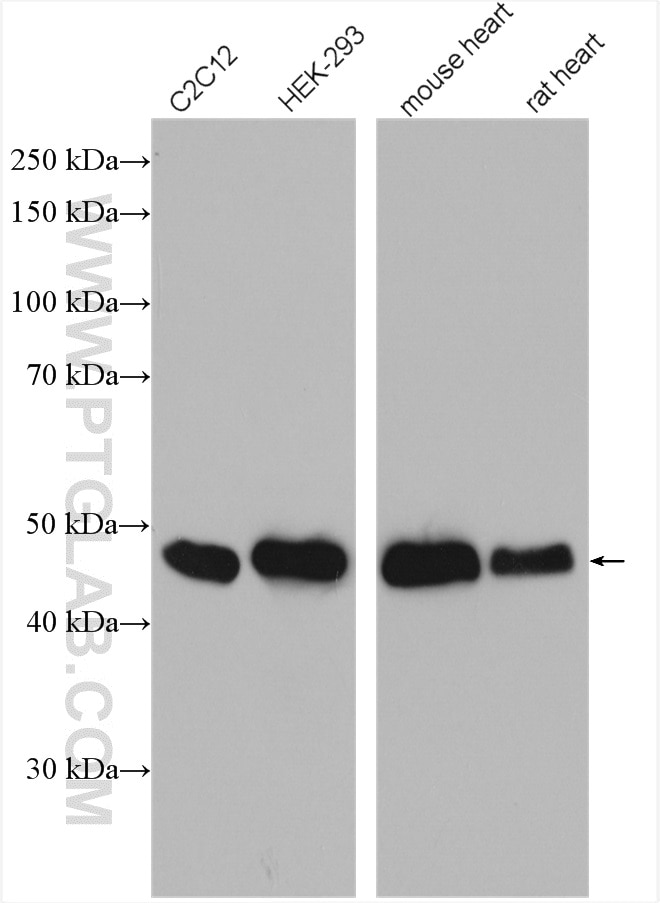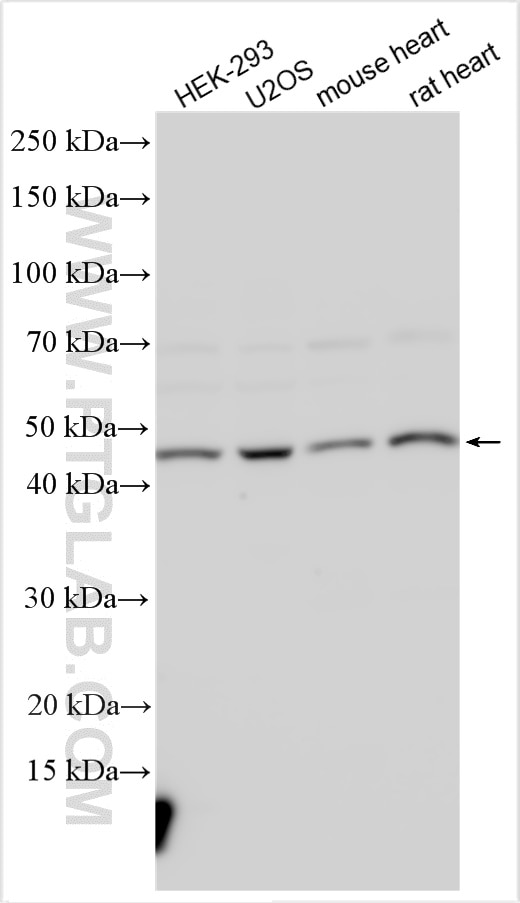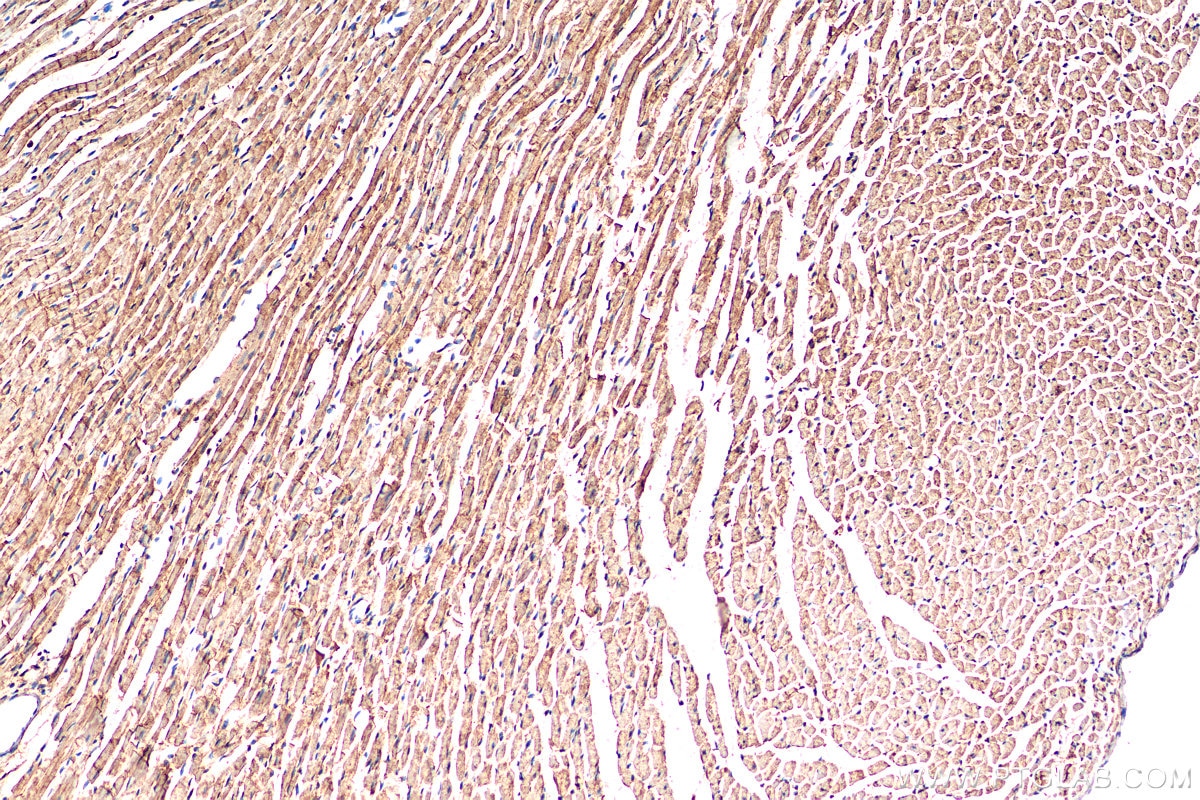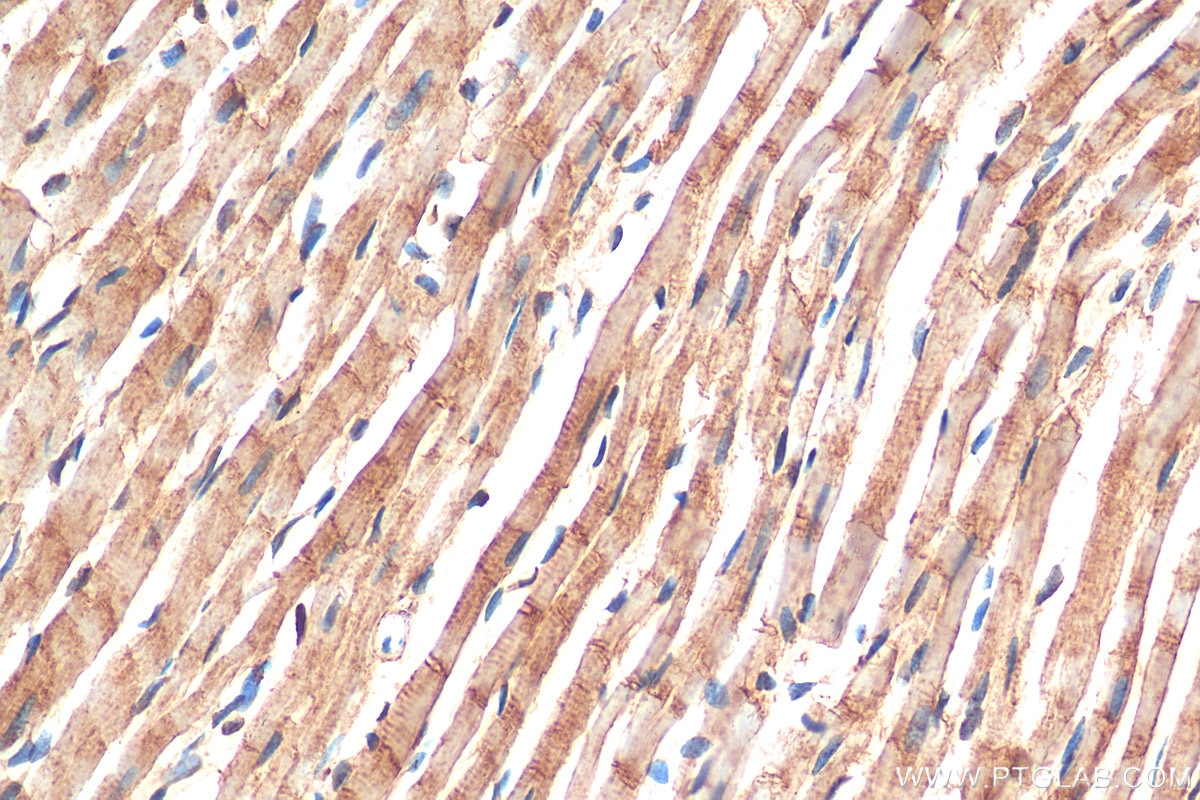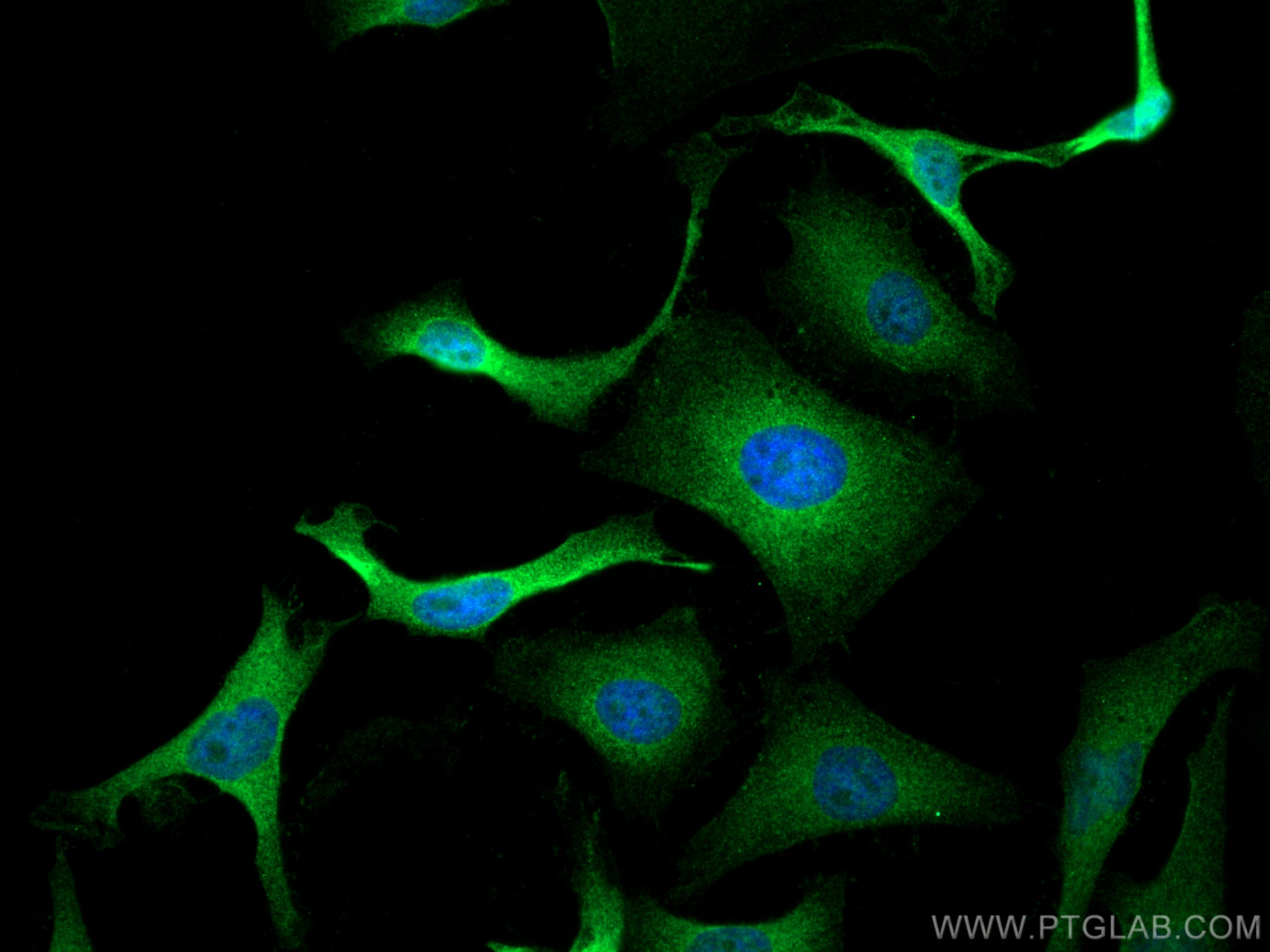- Featured Product
- KD/KO Validated
SMYD2 Polyklonaler Antikörper
SMYD2 Polyklonal Antikörper für IF, IHC, WB, ELISA
Wirt / Isotyp
Kaninchen / IgG
Getestete Reaktivität
human, Maus, Ratte
Anwendung
WB, IHC, IF, ELISA
Konjugation
Unkonjugiert
Kat-Nr. : 21290-1-AP
Synonyme
Galerie der Validierungsdaten
Geprüfte Anwendungen
| Erfolgreiche Detektion in WB | C2C12 cell, C2C12-Zellen, HEK-293-Zellen, Mausherzgewebe, Rattenherzgewebe, U2OS-Zellen |
| Erfolgreiche Detektion in IHC | Rattenherzgewebe Hinweis: Antigendemaskierung mit TE-Puffer pH 9,0 empfohlen. (*) Wahlweise kann die Antigendemaskierung auch mit Citratpuffer pH 6,0 erfolgen. |
| Erfolgreiche Detektion in IF | HeLa-Zellen |
Empfohlene Verdünnung
| Anwendung | Verdünnung |
|---|---|
| Western Blot (WB) | WB : 1:1000-1:4000 |
| Immunhistochemie (IHC) | IHC : 1:50-1:500 |
| Immunfluoreszenz (IF) | IF : 1:50-1:500 |
| It is recommended that this reagent should be titrated in each testing system to obtain optimal results. | |
| Sample-dependent, check data in validation data gallery | |
Veröffentlichte Anwendungen
| KD/KO | See 7 publications below |
| WB | See 11 publications below |
| IHC | See 8 publications below |
| IF | See 2 publications below |
Produktinformation
21290-1-AP bindet in WB, IHC, IF, ELISA SMYD2 und zeigt Reaktivität mit human, Maus, Ratten
| Getestete Reaktivität | human, Maus, Ratte |
| In Publikationen genannte Reaktivität | human, Maus, Ratte |
| Wirt / Isotyp | Kaninchen / IgG |
| Klonalität | Polyklonal |
| Typ | Antikörper |
| Immunogen | SMYD2 fusion protein Ag15823 |
| Vollständiger Name | SET and MYND domain containing 2 |
| Berechnetes Molekulargewicht | 433 aa, 50 kDa |
| Beobachtetes Molekulargewicht | 50 kDa |
| GenBank-Zugangsnummer | BC098305 |
| Gene symbol | SMYD2 |
| Gene ID (NCBI) | 56950 |
| Konjugation | Unkonjugiert |
| Form | Liquid |
| Reinigungsmethode | Antigen-Affinitätsreinigung |
| Lagerungspuffer | PBS mit 0.02% Natriumazid und 50% Glycerin pH 7.3. |
| Lagerungsbedingungen | Bei -20°C lagern. Nach dem Versand ein Jahr lang stabil Aliquotieren ist bei -20oC Lagerung nicht notwendig. 20ul Größen enthalten 0,1% BSA. |
Hintergrundinformationen
SMYD2, also known as SET and MYND domain containing 2, encodes an enzyme called N-lysine methyltransferase SMYD2, which plays a crucial role in cellular processes, including histone methylation, non-histone protein methylation, cell proliferation and differentiation, DNA repair (PMID: 18065756, PMID: 36191822). Aberrant SMYD2 expression has been linked to various cancers, including colon cancer, lung cancer, and cervical cancer. Smyd2 is strongly expressed in muscle cells with highest expression in the neonatal heart (PMID: 25125178).
Protokolle
| Produktspezifische Protokolle | |
|---|---|
| WB protocol for SMYD2 antibody 21290-1-AP | Protokoll herunterladen |
| IHC protocol for SMYD2 antibody 21290-1-AP | Protokoll herunterladen |
| IF protocol for SMYD2 antibody 21290-1-AP | Protokoll herunterladen |
| Standard-Protokolle | |
|---|---|
| Klicken Sie hier, um unsere Standardprotokolle anzuzeigen |
Publikationen
| Species | Application | Title |
|---|---|---|
Cell Death Dis SMYD2 targets RIPK1 and restricts TNF-induced apoptosis and necroptosis to support colon tumor growth. | ||
Theranostics Inhibition of SMYD2 suppresses tumor progression by down-regulating microRNA-125b and attenuates multi-drug resistance in renal cell carcinoma.
| ||
Stem Cells SMYD2 Drives Mesendodermal Differentiation of Human Embryonic Stem Cells through Mediating the Transcriptional Activation of Key Mesendodermal Genes.
| ||
Am J Cancer Res SMYD2 suppresses APC2 expression to activate the Wnt/β-catenin pathway and promotes epithelial-mesenchymal transition in colorectal cancer.
| ||
J Pharmacol Sci Pharmacological inhibition of SMYD2 protects against cisplatin-induced renal fibrosis and inflammation | ||
Exp Cell Res SMYD2 suppresses p53 activity to promote glucose metabolism in cervical cancer. |
Rezensionen
The reviews below have been submitted by verified Proteintech customers who received an incentive forproviding their feedback.
FH Deyong (Verified Customer) (03-11-2022) | This antibody worked well in the differentiated human cardiomyocytes.
|
